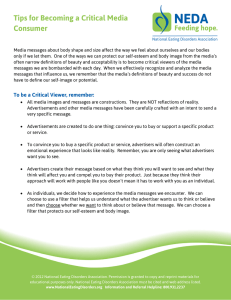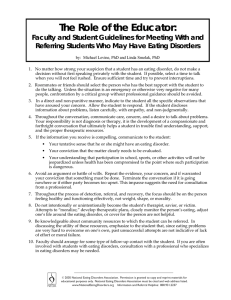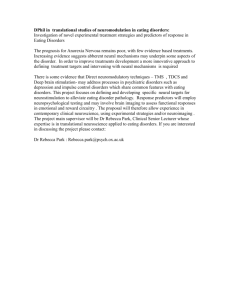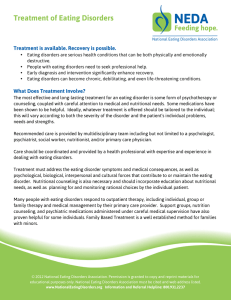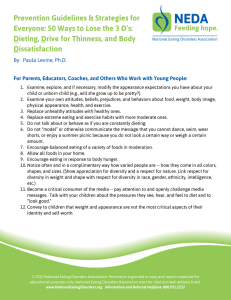The Role of the Educator: Faculty and
advertisement
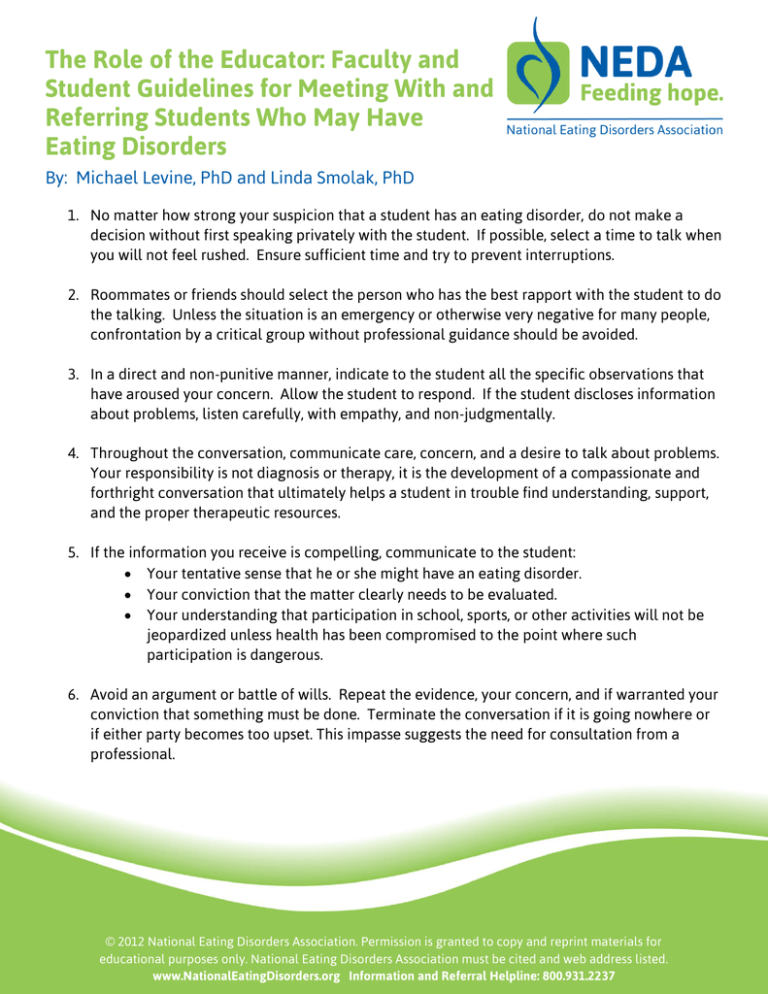
The Role of the Educator: Faculty and Student Guidelines for Meeting With and Referring Students Who May Have Eating Disorders By: Michael Levine, PhD and Linda Smolak, PhD 1. No matter how strong your suspicion that a student has an eating disorder, do not make a decision without first speaking privately with the student. If possible, select a time to talk when you will not feel rushed. Ensure sufficient time and try to prevent interruptions. 2. Roommates or friends should select the person who has the best rapport with the student to do the talking. Unless the situation is an emergency or otherwise very negative for many people, confrontation by a critical group without professional guidance should be avoided. 3. In a direct and non-punitive manner, indicate to the student all the specific observations that have aroused your concern. Allow the student to respond. If the student discloses information about problems, listen carefully, with empathy, and non-judgmentally. 4. Throughout the conversation, communicate care, concern, and a desire to talk about problems. Your responsibility is not diagnosis or therapy, it is the development of a compassionate and forthright conversation that ultimately helps a student in trouble find understanding, support, and the proper therapeutic resources. 5. If the information you receive is compelling, communicate to the student: Your tentative sense that he or she might have an eating disorder. Your conviction that the matter clearly needs to be evaluated. Your understanding that participation in school, sports, or other activities will not be jeopardized unless health has been compromised to the point where such participation is dangerous. 6. Avoid an argument or battle of wills. Repeat the evidence, your concern, and if warranted your conviction that something must be done. Terminate the conversation if it is going nowhere or if either party becomes too upset. This impasse suggests the need for consultation from a professional. © 2012 National Eating Disorders Association. Permission is granted to copy and reprint materials for educational purposes only. National Eating Disorders Association must be cited and web address listed. www.NationalEatingDisorders.org Information and Referral Helpline: 800.931.2237 7. Throughout the process of detection, referral, and recovery, the focus should be on the person feeling healthy and functioning effectively, not weight, shape, or morality. 8. Do not intentionally or unintentionally become the student’s therapist, savior, or victim. Attempts to “moralize,” develop therapeutic plans, closely monitor the person’s eating, adjust one’s life around the eating disorder, or cover for the person are not helpful. 9. Be knowledgeable about community resources to which the student can be referred. In discussing the utility of these resources, emphasize to the student that, since eating problems are very hard to overcome on one’s own, past unsuccessful attempts are not indicative of lack of effort or moral failure. 10. Faculty should arrange for some type of follow-up contact with the student. If you are often involved with students with eating disorders, consultation with a professional who specializes in eating disorders may be needed. © 2012 National Eating Disorders Association. Permission is granted to copy and reprint materials for educational purposes only. National Eating Disorders Association must be cited and web address listed. www.NationalEatingDisorders.org Information and Referral Helpline: 800.931.2237



